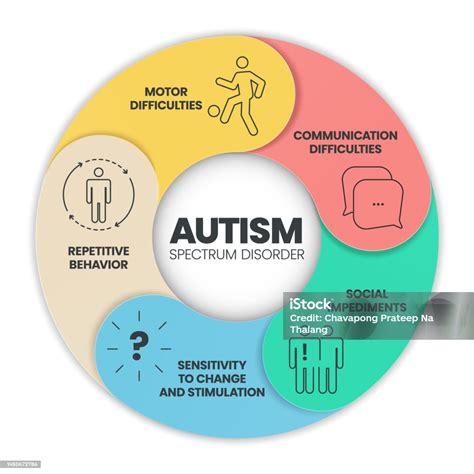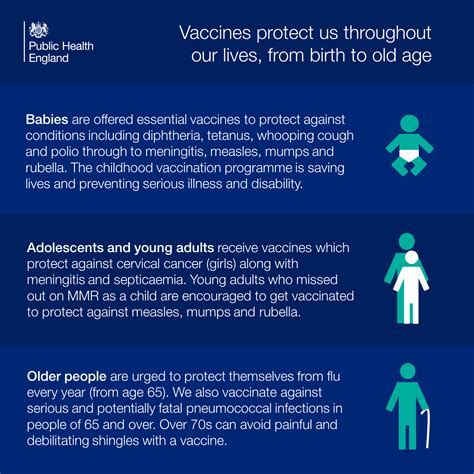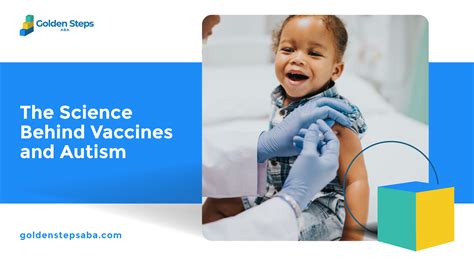Intro
The relationship between Autism Spectrum Disorder (ASD) and vaccines has been a topic of intense debate and scrutiny over the past few decades. Despite the overwhelming scientific evidence supporting the safety and efficacy of vaccines, concerns and misconceptions about their potential link to ASD persist. It is essential to delve into the history of this controversy, the scientific research that has been conducted, and the implications of the findings to better understand the complex issues at play.
The controversy surrounding ASD and vaccines originated in the late 1990s, when a British gastroenterologist named Andrew Wakefield published a paper suggesting a potential link between the measles, mumps, and rubella (MMR) vaccine and the development of ASD. The paper, which was later retracted due to methodological flaws and ethical concerns, sparked widespread fear and misinformation about the safety of vaccines. As a result, many parents began to question the necessity of vaccinating their children, and vaccination rates started to decline in some areas.
The alleged link between ASD and vaccines has been thoroughly investigated by numerous scientific studies, and the overwhelming consensus is that there is no causal relationship between the two. The Centers for Disease Control and Prevention (CDC), the World Health Organization (WHO), and the American Academy of Pediatrics (AAP) have all concluded that vaccines are safe and effective in preventing serious diseases, and that the benefits of vaccination far outweigh the risks. However, despite the scientific evidence, many parents and caregivers continue to express concerns about the potential risks of vaccines, and some have opted not to vaccinate their children.
Understanding Autism Spectrum Disorder

ASD is a complex neurodevelopmental disorder characterized by difficulties in social interaction, verbal and nonverbal communication, and repetitive behaviors. The exact causes of ASD are still not fully understood, but research suggests that it is a multifactorial disorder, influenced by a combination of genetic, environmental, and neurological factors. While the symptoms of ASD can vary widely in severity and impact, early diagnosis and intervention are critical in helping individuals with ASD to develop essential skills and achieve their full potential.
Prevalence and Diagnosis of ASD
The prevalence of ASD has increased significantly over the past few decades, with current estimates suggesting that approximately 1 in 54 children in the United States have ASD. The diagnosis of ASD is typically made in early childhood, although some individuals may not receive a diagnosis until later in life. The diagnostic process involves a comprehensive evaluation of an individual's behavior, communication, and cognitive abilities, and may include a range of assessments, such as psychological evaluations, speech and language assessments, and occupational therapy evaluations.The Science Behind Vaccines

Vaccines are a crucial component of public health, providing protection against serious and potentially life-threatening diseases. Vaccines work by introducing a small, harmless piece of a virus or bacteria to the body, which triggers an immune response and helps to build immunity against future infections. The development of vaccines involves a rigorous process of testing and evaluation, including laboratory studies, animal studies, and clinical trials, to ensure their safety and efficacy.
Types of Vaccines and Their Mechanisms
There are several types of vaccines, including inactivated vaccines, live attenuated vaccines, and conjugate vaccines, each with its own unique mechanism of action. Inactivated vaccines, such as the flu vaccine, contain killed viruses or bacteria, while live attenuated vaccines, such as the MMR vaccine, contain weakened viruses or bacteria. Conjugate vaccines, such as the pneumococcal conjugate vaccine, combine a weakened bacteria with a carrier protein to enhance immune response.Debunking the Myth of a Link Between ASD and Vaccines

Numerous scientific studies have investigated the potential link between ASD and vaccines, and the overwhelming evidence suggests that there is no causal relationship between the two. The CDC, WHO, and AAP have all conducted extensive reviews of the scientific literature and have concluded that vaccines are safe and effective in preventing serious diseases. Some of the key findings from these studies include:
- A 2012 meta-analysis published in the Journal of Pediatrics, which found no association between MMR vaccine and ASD.
- A 2013 study published in the Journal of the American Medical Association, which found no link between vaccine exposure and the development of ASD.
- A 2019 study published in the Annals of Internal Medicine, which found that MMR vaccine does not increase the risk of ASD.
Addressing Concerns and Misconceptions
Despite the scientific evidence, many parents and caregivers continue to express concerns about the potential risks of vaccines. Some of the common concerns and misconceptions about vaccines include:- The idea that vaccines contain toxic ingredients, such as mercury or aluminum, which can cause harm to children.
- The belief that vaccines can overwhelm a child's immune system, leading to ASD or other neurological disorders.
- The concern that vaccines are not tested for safety and efficacy before they are approved for use.
These concerns and misconceptions have been thoroughly addressed by scientific research and expert organizations, which have consistently shown that vaccines are safe and effective in preventing serious diseases.
Implications and Recommendations

The implications of the controversy surrounding ASD and vaccines are significant, with potential consequences for public health, individual health, and the well-being of individuals with ASD and their families. Some of the key recommendations for addressing this controversy include:
- Promoting accurate and evidence-based information about vaccine safety and efficacy.
- Encouraging open and honest communication between healthcare providers, parents, and caregivers about vaccine concerns and misconceptions.
- Supporting research and surveillance to better understand the causes of ASD and the potential risks and benefits of vaccines.
Conclusion and Future Directions
In conclusion, the relationship between ASD and vaccines has been a topic of intense debate and scrutiny, with significant implications for public health and individual well-being. While the scientific evidence overwhelmingly supports the safety and efficacy of vaccines, concerns and misconceptions about their potential link to ASD persist. By promoting accurate and evidence-based information, encouraging open and honest communication, and supporting research and surveillance, we can work towards a better understanding of the complex issues at play and promote the health and well-being of individuals with ASD and their families.What is the current scientific consensus on the link between ASD and vaccines?
+The current scientific consensus is that there is no causal relationship between ASD and vaccines. numerous scientific studies have investigated this potential link, and the overwhelming evidence suggests that vaccines are safe and effective in preventing serious diseases.
What are some common concerns and misconceptions about vaccines?
+Some common concerns and misconceptions about vaccines include the idea that vaccines contain toxic ingredients, the belief that vaccines can overwhelm a child's immune system, and the concern that vaccines are not tested for safety and efficacy before they are approved for use.
How can I get accurate and evidence-based information about vaccine safety and efficacy?
+You can get accurate and evidence-based information about vaccine safety and efficacy from reputable sources, such as the CDC, WHO, and AAP. These organizations provide reliable and up-to-date information about vaccine safety and efficacy, as well as resources and guidance for parents and caregivers.
We invite you to share your thoughts and questions about the relationship between ASD and vaccines in the comments section below. Your engagement and participation are crucial in promoting a better understanding of this complex issue and supporting the health and well-being of individuals with ASD and their families.
